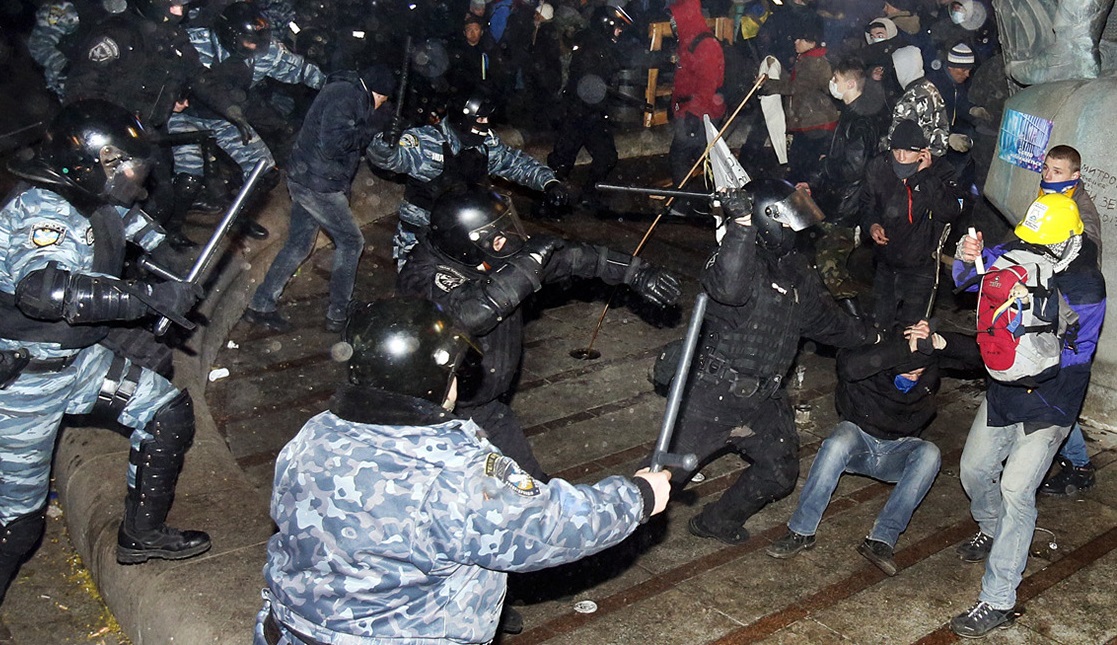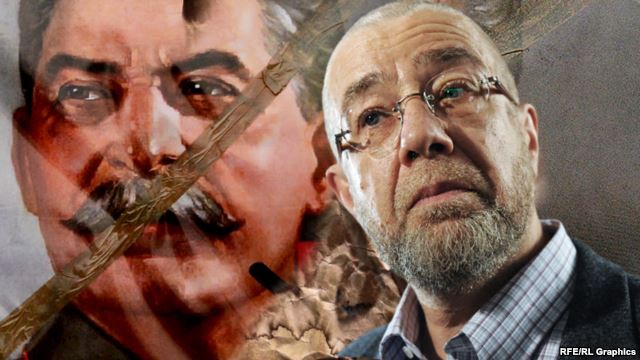It’s 31 May, Pereiaslav-Khmelnytskyi city, Kyiv Oblast, the eve of International Children’s Day. Some police officers find Friday evening entertainment in shooting bottles on the street. They are drunk. Five-year-old Kyrylo was playing outside somewhere near. A bullet shattered his skull and, after two days in the hospital, took his life. The incident was, once again, the last straw. Protesters across Ukraine gather at police administrations to demand Minister of Internal Affairs Arsen Avakov resign. Again.
The tragedy revealed the cynicism of the current law enforcement system and the critical lack of its real reform. Again.
After the incident, the suspects had hidden. At first, the prosecutor’s office demanded home arrest for them – in the eyes of society, a disproportionally lenient precautionary measure for the case. As well, initially the suspects were incriminated with hooliganism. Later the Prosecutor General Office changed it to intentional murder.
Kyiv’s Holosiyiv court must today decide whether the two policemen suspected in killing the five-year-old will remain under custody while the investigation is ongoing.
Kyrylo Tliavov died in the hospital on 3 June. The same night, dozens of people came to the building of the Ministry of Internal Affairs in Kyiv. They brought toys, candles, and posters saying “Police kills.”

According to the participants of the protest, police representatives came out to speak only hours later, when the majority of protesters were dissipating. Serhiy Kniazev, the Head of the National Police and Dmytro Tsenov, the Head of the Police in the Kyiv Oblast came out to talk. Tsenov had tendered his resignation and asked to be sent to the Joint Forces Operation (de-facto war in Donbas), a move which, although intended to be seen as penitence, confused many – serving in the army a matter of state importance, not punishment.
The next morning, the toys and flowers brought to the building of the Ministry were cleared.

Officials said that the two suspects serve in the patrol police, a unit which was created from scratch after the Euromaidan revolution of 2014 and was for some time hailed as one of the successes of the post-revolutionary government. Roman Balan (Sinitsyn), a civic activist who had worked as head of the commission for re-certification of the police, said that this isn’t true and the suspects represent not the new generation of the police but the old guard.
“The boy was killed by ex-road police officers. They failed the certification and were recommended for dismissal. But they were reinstated through court,” writes Balan.
The court presented another version – that the boy was killed by the 14-year old son of one of the suspects, as the children were spending time together with the adults that Friday night. Allegedly, the suspect’s son was also shooting.
So far, it isn’t clear which weapon the suspects were shooting from, because it disappeared. But according to media publications, it appears that it was a traumatic firearm, not a lethal one.
On 4 June, protests for Minister Avakov’s resignation were scheduled in 18 large Ukrainian cities.
Why Avakov has to leave, according to the protesters
Arsen Avakov has been in charge of the ministry since February 2014, first as an acting minister and then appointed from the Narodnyi Front (People’s Front) party quota.
In 2018, he became one of those officials whose resignation was frequently demanded during protests. The improper work of his institution was the reason. During the last year, at least 53 attacks on civic activists took place. Activists accused the law enforcement forces in covering up those responsible for the crimes, and sometimes of being complicit in them.
The most famous incident was the acid attack on Kherson activist and city official Kateryna Handziuk. The 33-year-old woman died in the hospital after several months of doctors’ attempts to save her life.
- Read more: Attacks on civic activists in Ukraine reaching critical level, encouraged by unreformed police
Activists demanded Avakov’s resignation again and again. But he did not leave. The chances that he will this time are low.
“A long ago it became clear that our law enforcement institutions do not work properly. It can’t go on like this any further. We can’t stand this shit we are being fed anymore, when they try to tell us that somebody is dismissed for the killing of a child, oh then it turns out he was suspended, but not really, because this carcass turns up in another position, to continue covering up scum just like him,” says the announcement of the protest called Impunity Kills.
It concludes that it is impossible to let those who are guilty remain unpunished again.
Something wrong with the system
Still, replacing Avakov is not a silver bullet for the Ukrainian law enforcement system.
Yevhen Krapyvin, a specialist of the Expert Center for Human Rights, agrees that the Minister is responsible for the state policy in the system, including its drawbacks. However, the expert doubts that Avakov would resign himself and calls to address the Parliament, as the dismissal procedure requires.
The expert believes that four systematic problems are the reason for the tragedy of little Kyrylo:
- Law enforcement officers have impunity for committing official crimes which applies to everyday, civilian life.
- The lack of an independent system for registering weapons, particularly non-lethal firearms.
- The lack of proper psychological work with policemen who constantly experience stress.
- The lack of a working mechanism to certify policemen.
The reform of the law enforcement system started in 2014 but still has not been completed. The first step was renaming the Ukrainian police from “militsia” to “politsiya” aka police, then a completely new unit of law enforcement, the patrol police, was created from scratch in 2015-2016. The new employees were promised good working conditions and a decent salary. Four years later, the unit experiences systematic problems inherited from the old militia – outdated legislation, low salaries, lack of opportunities for the police staff to resist the abuse of power by their bosses.
The situation with other parts of the reform is even worse.
“The patrol police get all the attention, as they are visible on the streets. However, the main work of the police is actually to prevent and counter crime. The core of the police are operational units – criminal police and pre-trial investigation bodies,” Krapyvin told Euromaidan Press in 2018.
And this core of the police, which is responsible for crimes like murders, rapes, robberies, has not been reformed.
First of all, it consists of almost the same people who worked there before the Euromaidan Revolution. This does not necessarily mean they are bad professionals but does indicate that they belong to the old system.
In 2016, a re-attestation of the policemen took place, but it did not bring significant changes.
Only some 8% of the policemen were dismissed. Moreover, a large part of that 8 % got reinstated through court appeals. As a result, the state even paid them UAH 55mn ($2.1mn) in compensation for not being able to work while the court procedures were taking place.
“Regarding investigators and operative officers, they are old employees who work according to old mechanisms. And all the things which we criticized them for – torture, illegal detention, falsification of evidence, prosecuting innocent people, etc – it has all remained,” the expert says.
A major change which took place recently in the law enforcement system was the creation of the State Bureau of Investigation. This new law enforcement institution was created to tackle problems related to crimes committed by top officials, law enforcement officials, military officers, and judges.
The State Bureau of Investigation is now dealing with the case of the policemen suspected in killing five-year-old Kyrylo.








